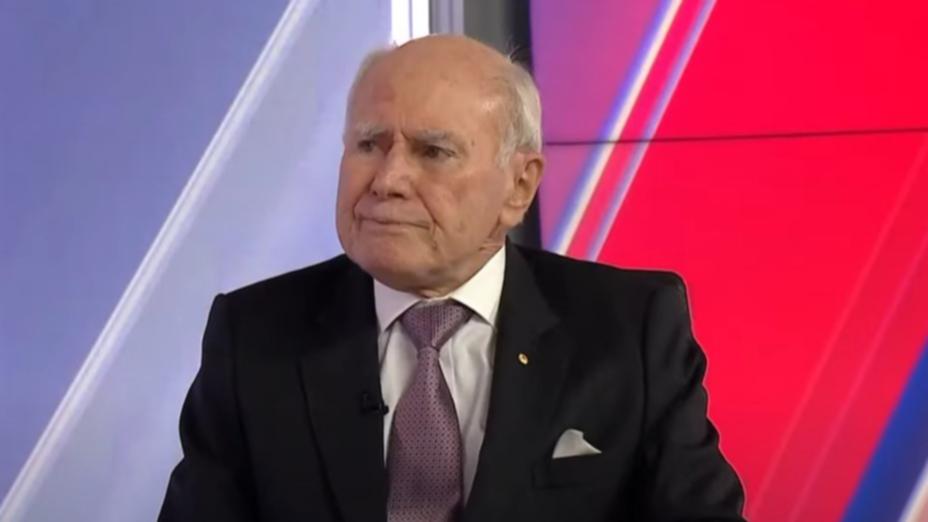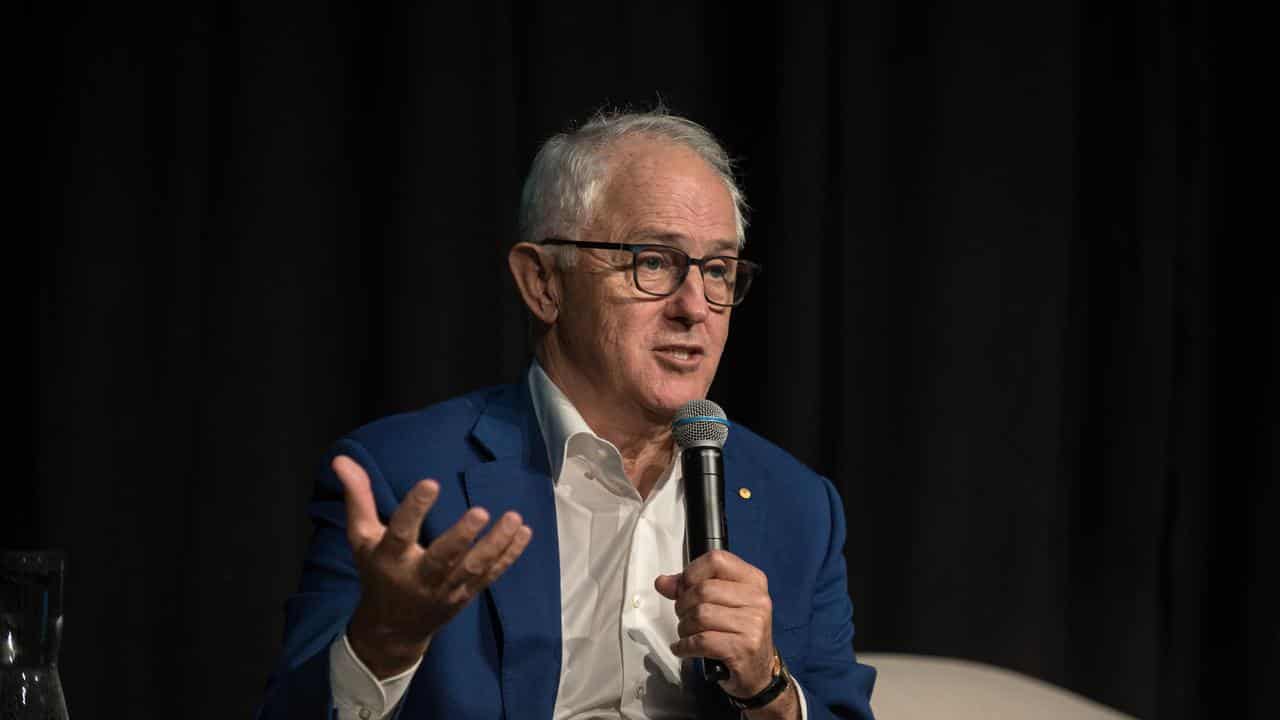NZ-Australia relationship appears to be on the way up under the Albanese government

In the early years of the John Key Government, then Australian Prime Minister Kevin Rudd liked to hold trans-Tasman Cabinet meetings.
These meetings – often organised around a Bledisloe cup match – were a chance for Cabinet ministers from each side to talk.
According to sources familiar with one of these meetings, each minister was supposed to speak for about five minutes to take up the assigned hour.
Instead, Rudd stood up, lectured the room for the best part of the hour, before Key stood up and said words to the effect of, “well, I think Kevin’s just about covered it all”.
READ MORE:
* PM says Russia’s war ‘morally bankrupt’ but should not be seen as broader conflict
* Jacinda Ardern feels the fresh breeze blowing through Australian politics
* PM: Flood assistance talk shows ‘fundamental change’ in Australian Government view of Kiwis living there
Although that story is mostly a funny one of Rudd’s erratic behaviour, it also speaks to a deeper truth. Australian political leaders can either ignore or simply lecture New Zealand ones. And that New Zealand, being the smaller country, values Australia in a way that is not always reciprocated.
Australia sees itself as a thrusting middle power looking outwards into Asia. For political players in Canberra and around the states, successful New Zealand political parties are worth keeping an eye on (the Australian Liberal Party studied John Key’s success closely). But for broader lessons on how to do things, New Zealand has been basically ignored or talked down to.
This has manifested itself most clearly in the politicisation of 501 deportees and with at times less than subtle suggestions that New Zealand is really a bunch of panda-huggers who don’t take China seriously.
Lisa Maree Williams/Getty Images
The trans-Tasman relationship has been a bit fraught over recent years, but there are signs it could be heading into more positive territory.
There have also been grumbles from Australia Governments over the past few years, that while New Zealand happily talks a big game on climate change, the actions of the Ardern Government have not matched the rhetoric. And in times of labour shortage, Australia is very happy to get as much skilled labour from New Zealand as possible.
However, New Zealand’s foreign policy stance on China has stiffened rhetorically while also attempting to do so respectfully. New Zealand has adopted the language “the free and open indo-Pacific” and it has heartily lined up along with other liberal democracies to support Ukraine in its war with Russia. New Zealand want more US economic engagement in the region.
And further change in the relationship could be on the horizon says Natasha Kassam, a former Australian diplomat and director of the Lowy Institute’s public opinion and foreign policy program.
Kassam is in charge of Lowy’s polling programme which gauge Australian perceptions of other countries and leaders.
Luke Malpass/Stuff/Stuff
Natasha Kassam, the Lowy Institute’s director of public opinion and its foreign policy program.
“One thing that I think is shifting a little bit is, say 10 years ago, if you asked Australians who our best friend in the world was, they would be divided between New Zealand, the United Kingdom, the United States, that’s very much shifted now. And it’s a majority view that New Zealand is Australia’s best friend in the world,” she says.
“Australians have always felt very warmly towards New Zealand. New Zealand is consistently the country which we see as our best friend and Prime Minister Ardern is the leader that Australians have the most confidence in.”
Kassam says that there is also a level of disillusionment at play as world events have become more complicated – with both Brexit and the Trump Presidency being deeply unpopular in Australia
“These things have made Australians question some of those traditional partnerships and I think look closer to home.” she says.
1 NEWS
The Prime Minister delivered a major foreign policy speech in Australia, focusing on influence in the Pacific and the impact of Russia’s invasion of Ukraine.
The New Zealand Australian relationship is like no other. Two highly integrated economies, free flow of people and a big Kiwi Diaspora across the Tasman. It is New Zealand’s second-largest trading partner with $22 billion in two-way trade and a significant source of tourists. Many regulatory settings are aligned.
Government body NZ Story has done some qualitative, focus group research on how Australians feel about themselves and others. The research will be released on July 27.
Headed by David Downs, NZ Story just what its name suggests, its objective is to craft a compelling backstory about New Zealand and what doing business in the country and with its companies means. The goal is to move beyond the old clean green tropes push hard on a broader understanding of New Zealand’s reputation, values and what it has to offer.
RICKY WILSON/STUFF/Stuff
David Downs, CEO of NZ Story.
But it is in the context of Australia that NZ Story has done this recent work, trying to understand what perceptions are of New Zealand.
According to the research, since 2015 New Zealand has become more admired for its approach to life, is viewed as a more caring society than it was, however as a result of lockdowns and closed borders is viewed as less welcoming. Although that could change as travel and open borders become normal again.
Downs says that it five years since this sort of work was last done and that the perceptions of New Zealand have changed – mostly for the better.
“The fact that it’s changed a lot is important, I think, for not just export businesses, but education providers, tourism providers, everyone should know,” he says.
“The good news is, largely, it’s for the benefit of New Zealand. I think there’s sort of an increasing respect for New Zealand that comes through this report … more kind of understanding of us as an equal partner, not the little cousin they look down on but actually someone they’ve quite a lot of respect for and that’s across multiple things.”
“It’s our leadership, it’s our Covid response, it’s our indigenous culture and the way that we work, integrated Māori culture into our society. So there are a lot of positives, which is fantastic.”
Integration of Māori culture is also seen as a positive by Australians in the research, perhaps reflecting the fact that, although New Zealand is very far from perfect, indigenous relations and life outcomes still significantly lag in Australia.
From business focus groups, however, the research found that there is a perception that would-be New Zealand exporters neglect matters after sending the first container, that they don’t “show up when it matters” and meet customers. There also can be the perception that the small scale of the country makes it difficult for large Australian firms to do business with it. But, New Zealand is viewed as hungry for success.
Unknown
Prime Ministers Anthony Albanese and Jacinda Ardern take a selfie in Sydney.
“New Zealand can be seen as a country where we don’t really show up properly, we don’t kind of follow through on some of our commitments, we’re sort of half-hearted a little bit in the market. And so those are things that we have to be quite conscious about,” Downs says.
“Lots of New Zealand businesses do do well, but in general, the perception … and this is not us saying this, this is Australian buyers telling us that we need to lift our game a little bit and really see the scale of the opportunity and take the market seriously.”
New Zealand is also viewed as expensive, but having a lot of the same regulation rules is an advantage that should not be underestimated.
Basically the upshot is that, since Covid-19, perhaps as a result of the fractious Australian political culture of the past few years, Australian public attitudes have shifted to more closely align with New Zealand’s.
Already the relationship with new Prime Minister Anthony Albanese and Treasurer Jim Chalmers is more positive. In opening remarks to the Australia-New Zealand Leadership Forum yesterday he said that his affinity with New Zealand was “personal”.
“I come from, grew up in, and now represent an electorate in South-East Queensland, which has the largest number of New Zealand-born residents of any community in Australia, and big Māori and Pasifika communities.
“This will continue to shape my thinking as Treasurer, as I work with you and my colleagues to build a stronger and more inclusive economy.”
Chalmers is even keen to talk to Minister of Finance Grant Robertson about his wellbeing budgets.
Mark Baker/AP
Already the relationship with new Prime Minister Anthony Albanese is more positive for NZ.
“Our new Government also has a lot to learn from New Zealand, and tomorrow [Friday] I will speak with Grant about New Zealand’s Wellbeing Budget and how to reshape the discussion around the economy and the budget in terms of measuring what matters,” he said.
Kassam says that, particularly on climate policy, the views of Australian politicians have, for at least four years has been out of step with public opinion. New Zealand’s approach to it is viewed as being something worth emulating.
“What we’ve seen in the recent election in Australia is that the public is more progressive than our politics have let on.
“I think that means that Australians look at New Zealand with a progressive foreign policy with climate change at the centre of what they do; with a young female leader and they see a style of governing and politics that we would like – in some ways – to emulate here and have not yet been able to do,” she says.
Lisa Maree Williams/Getty Images
Treasurer Jim Chalmers is keen to talk to Minister of Finance Grant Robertson about his wellbeing budgets.
She says the election of Albanese Government and the change of direction it is likely to bring, could also bring the two countries close together.
“We suddenly now have leaders from the same side of politics in office. Leaders that agree, for example, on the climate crisis in office.
“And one could anticipate that some of the friction in the past few years – whether that’s been from being tough on China or the treatment of New Zealand citizens in Australia – I think some of that will be dealt with differently going forward,” Kassam says.
For New Zealand it does look as if the relationship will continue to improve under this new Australian regime, and that there are opportunities in this post-Covid world. This week was a first salvo in taking advantage of it.




